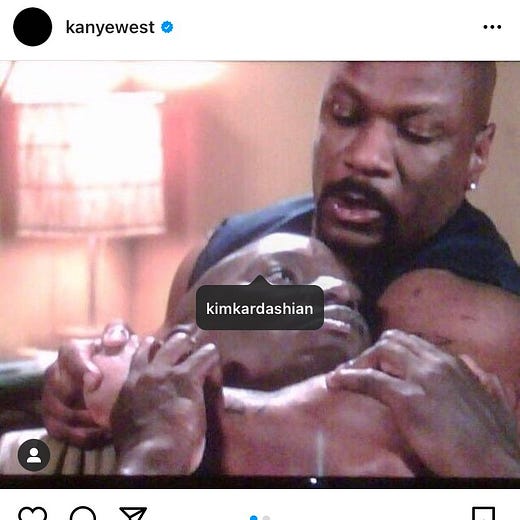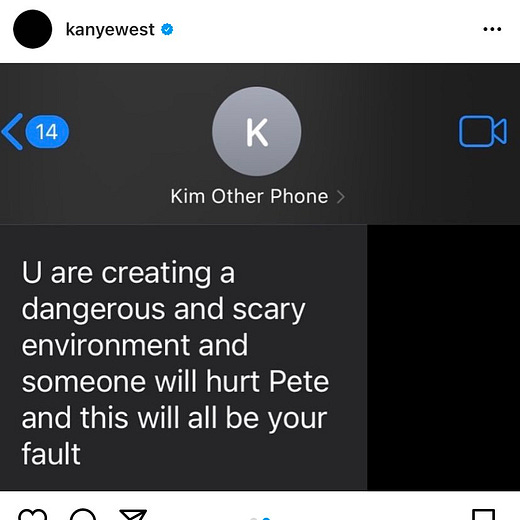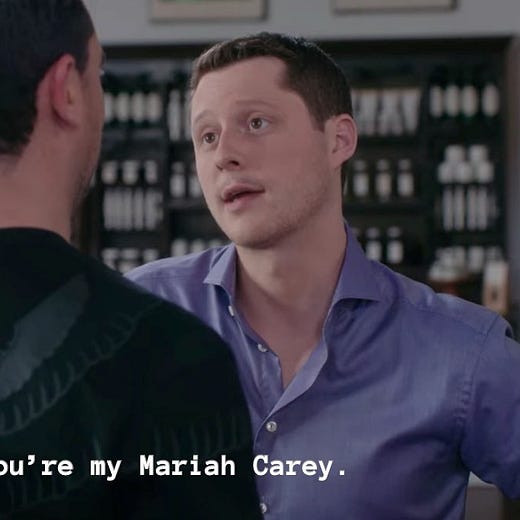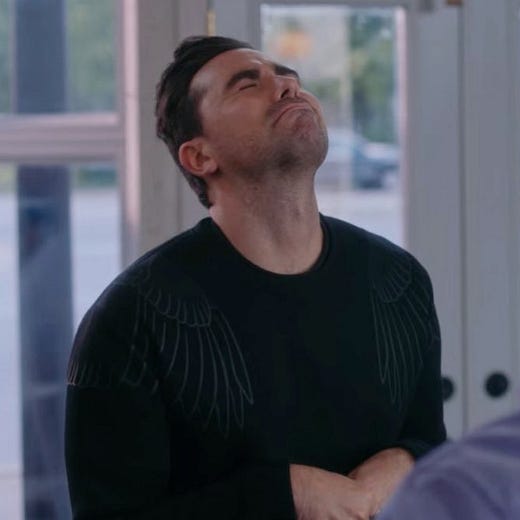on community
& film recs, reading recs, tweets, etc.
Hi. Hello. Welcome.
I’m here with a Wednesday post this week because I have 1) time and 2) things to say. Thank you for reading!
Here’s what I have for you today:
Housekeeping
Film recs
A new zine
What I read last week
On community
Tweets
Housekeeping:
My fiction collection remains available for preorders:
& film recs:
This week, I’ve been perusing old issues of Femme Fatale for research/archival purposes. And, in doing so, I’ve gathered a bunch of horror/thriller film titles with lesbian undertones (or overtones!).
Here’s the list—and bear in mind that I haven’t seen any of these yet:
Velvet Vampire
The Hunger
Daughters of Darkness
The Haunting
Dracula’s Daughter
Terror from the Crypt
Vampyres
The Killing of Sister George
The In Crowd
Mulholland Drive
Showgirls
Double Exposure
Fugitive Rage
Hot Blades
The Hunger
The Haunting of Morella
Mercy
Plan B
Chained Heat
Embrace of the Vampire
Wild Things
The Hot Spot
Barbarella
The Devil’s Wedding Night
The Forsaken
Deadlier than the Male
Another Woman’s Lipstick
Jack and Jill and Jill
Pendulum
& I have a new zine
available for purchase, with work from my memoir-in-progress.
You can swipe through some excerpts here:
And you can purchase it here.
What I read last week:
The Real Bad Art Friend Is the Horrible Political Economy of Writing
Lesbianism Made Easy, Helen Eisenbach (extremely funny; highly recommend)
On community:
I address this a little in Publishing Poems: An Easy Guide and in being a good literary citizen, but it bears repeating, so here we are.
This week, I read “The Real Bad Art Friend Is the Horrible Political Economy of Writing,” which argues that
the jealousies, backbiting, and professional sniping stereotypically associated with artists, and recently spotlighted by a viral New York Times culture piece, are actually the product of the daunting and merciless political economy they’re forced to operate in.
In other words: that the pettiness in which (some) writers participate is inevitable because of the competition for resources that comes from the scarcity model.
The author writes,
What if this kind of poisonous behavior is exactly what happens when human beings are forced to compete for scraps at a steadily dwindling economic banquet?
[…]
Dorland and Larson’s own colleague, author Steve Almond, has urged readers to try and understand that the two are “human beings, writers living in an era . . . in which it often feels impossible (especially for writers early in their careers) to believe their stories will ever get published and read.”
The author then goes into depth about just how depressing the field of writing & creative writing & academia is, and it’s quite depressing, so I won’t share the numbers here.
I am interested, though, in this idea of competition-as-necessity, due to our material realities and—even more so—the ways in which we can subvert this expectation through community, mutual aid, and efforts toward enabling other people’s success.
Here, again, are a few ways you can build community as opposed to buying into the long-held model of scarcity.
When you like a writer’s work, say so.
Review books you love for literary journals.
Share their work with others.
Solicit from writers you like (as an editor).
Alert your friends/acquaintances about job openings, grants, and other opportunities that might be of interest.
Tell your press about manuscripts you’ve read that they might like.
Buy more books!
Pay writers for their work (as an editor).
Start a reading series.
Attend readings.
Participate in a mentorship program.
Mentor on your own.
In a previous post, I summarized what being a good community-member means for me:
being generous with your praise
interrogating gatekeeping, inequity, and unethical behavior from The Powers That Be, and
seeking to help build a more inclusive and just future within the literary world at large.
Tweets:
Now, speaking of community & community-building, go forth & email a writer whose work you love. And preorder my chapbook so I can buy myself some bagels.
And, as always, thank you for being here—
-Despy Boutris











